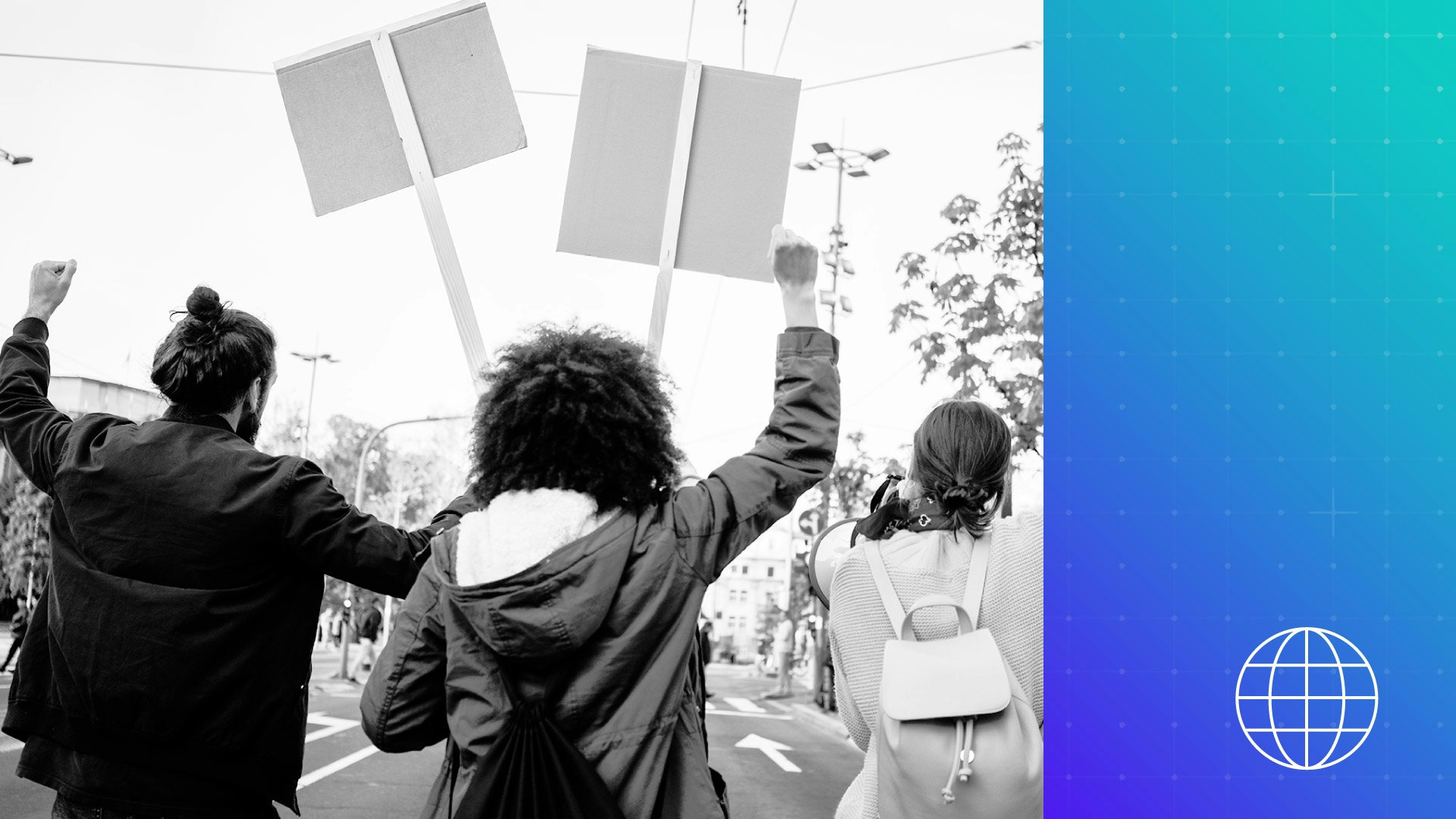How brands can navigate the global culture wars

Key Takeaways
Groups of consumers who hold traditionally liberal views on hot-button social issues are more likely to want companies to take a stance on them, with some exceptions.
Political ideology is a strong predictor of consumers’ views on corporate activism, but gaps in demand for activism between left- and right-leaning consumers can vary widely by country and issue. Embroiled in its culture wars, the United States has the biggest gap, and transgender rights is the most divisive issue across markets.
For companies operating across markets and working to align their stance on key issues with that of their target consumer bases, understanding the interplay between politics and culture is key to the success of global communications strategies and maintaining consumers’ goodwill.
Our Global Corporate Purpose Tracker and companion data assets provide companies with new tools to help chart a way forward.
For our latest analysis (and takes) on major geopolitical developments, sign up for our bimonthly newsletter Counter/Consensus.
Consumers are demanding new and different kinds of corporate activism. In a world where trust in institutions has been on the retreat and ethical consumerism on the rise, people increasingly look to companies to lead on hot-button issues like climate change, LGBTQ+ rights, abortion access, unionization, and more.
With the U.S. election season in full swing, the 2024 global election supercycle well underway, and America’s culture wars metastasizing internationally, brand leaders at corporate multinationals are navigating a communications minefield.
To help them chart a path forward, Morning Consult’s Global Corporate Purpose Tracker — along with newly available companion data assets — follow consumers’ expectations surrounding corporate activism and gauge global trust in corporations and business leaders, while diving deeper into the expectations of global consumers around corporate action on key social issues.
The business bully pulpit
Unsurprisingly, consumers’ own views on an issue play a large role in determining whether consumers want companies to speak out on hot-button issues. Generally speaking, the more supportive consumers in a given market are of typically liberal or progressive views on these issues, such as access to abortion or transgender rights, the more likely they are to say that companies should take a stance on them. Conversely, conservative consumer groups prefer companies to stay out of things and avoid taking a stance, presumably because they assume companies will echo liberal views.
Global consumers’ views on hot-button social issues align with demand for corporate action on them
One noteworthy exception is France, where high shares of consumers tend to support LGBTQ+ rights, abortion access and unionization, and yet are less interested in hearing from industry on these issues. This may be due to the fact that French sentiment ranks at the very bottom when it comes to global consumers’ trust in business leaders, possibly leading consumers to devalue corporate input into the broader cultural conversation.
Where you sit (mostly) determines where you stand
Interesting variation is also visible when we look at the divide in demand for corporate activism based on whether consumers rated their own political ideology as more conservative (right-leaning) or more liberal (left-leaning) on a seven-point scale. Some issues and some countries exhibit larger gaps between right- and left-wing views on corporate activism than others. Importantly, the United States — the world’s largest consumer market — has the largest average gap of any country, followed closely by highly-polarized Brazil.
Left-leaning and right-leaning consumers' demand for corporate activism by issue

Consumers in Mexico, South Africa, Nigeria and to a lesser extent India all show more limited variation in their views as a function of political ideology. For companies operating in those markets, engaging on social issues will be less polarizing than elsewhere, and a one-size-fits-all approach to corporate messaging will be more feasible. In other markets, companies will need to adopt more tailored stances on key issues as a function of their local consumer bases, both when it comes to understanding how key audiences view these issues and how they relate to corporations in relation to their social views.
Some topics are more divisive than others
By issue, support for racial equality is the least politically divisive on average across the countries where we track public sentiment on social issues, whereas transgender rights is the most. Issue divisiveness can also be highly market-specific. For example, political divides in consumers’ views on corporate activism around unionization are particularly visible in Brazil and Argentina, where labor movements have come to be seen as a creature of the left. Support for abortion access, meanwhile, is not clearly associated with political ideology in Germany, Italy or Japan, but certainly is in the United States.
The interplay of culture and politics is dynamic
Erstwhile U.S. senator Daniel Patrick Moynihan famously said that the central conservative truth is that culture, not politics, determines the success of a society, but that the central liberal truth is that politics can change a culture. When it comes to corporate activism, a central truth is that understanding the interplay between politics and culture in a given market, and among key consumer bases, determines the success of your communication strategy. Our Global Corporate Purpose Tracker offers new tools and data to help companies doing business in the United States and globally better understand and navigate these dynamics.
Sonnet Frisbie is the deputy head of political intelligence and leads Morning Consult’s geopolitical risk offering for Europe, the Middle East and Africa. Prior to joining Morning Consult, Sonnet spent over a decade at the U.S. State Department specializing in issues at the intersection of economics, commerce and political risk in Iraq, Central Europe and sub-Saharan Africa. She holds an MPP from the University of Chicago.
Follow her on Twitter @sonnetfrisbie. Interested in connecting with Sonnet to discuss her analysis or for a media engagement or speaking opportunity? Email [email protected].